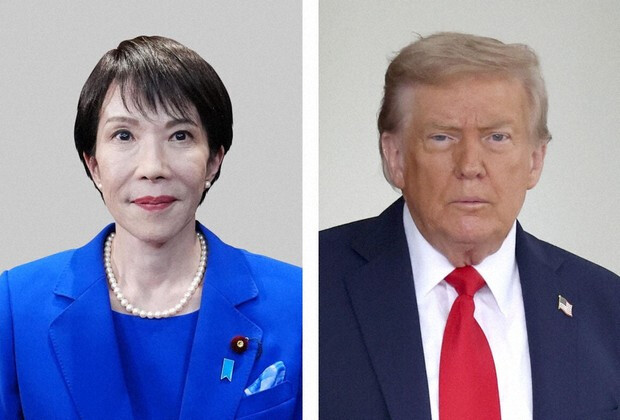
KUALA LUMPUR, MALAYSIA – In her diplomatic debut, Japan's new Prime Minister Sanae Takaichi secured a commitment to strengthen the U.S.-Japan alliance in her inaugural phone call with U.S. President Donald Trump on October 25, according to reports from local media. The call took place shortly after Takaichi's arrival in Kuala Lumpur to attend the ASEAN Summit, her first major multilateral diplomatic engagement.
Takaichi emphasized the strategic importance of Japan to the U.S. in the context of Washington's China strategy and the broader Indo-Pacific strategy. "The strengthening of the U.S.-Japan alliance is the most crucial matter of our foreign and security policy," Takaichi told reporters following the call. She confirmed that both leaders agreed on elevating the alliance to a higher level.
A New Chapter for the Alliance
The phone conversation set a positive tone for the relationship between the conservative new Japanese leader and the U.S. President. Takaichi described President Trump as "cheerful and pleasant," noting he was a politician "watched with great interest by former Prime Minister Shinzo Abe." This echoes the close personal relationship Trump shared with Abe.
President Trump, while en route on his Asia tour, remarked that the call was "very good." He recalled that Takaichi was "a very close ally and friend of former Prime Minister Abe. Former Prime Minister Abe was one of my favorite people." This shared history and mutual admiration for Abe is expected to serve as a strong foundation for the Takaichi-Trump rapport, which will be tested in their upcoming face-to-face summit.
Takaichi also took the opportunity to express gratitude for Trump's past efforts regarding the issue of Japanese citizens abducted by North Korea and requested his continued cooperation on the matter.
The two leaders anticipate a meeting in Tokyo, with Takaichi expressing eagerness to host Trump. Their first U.S.-Japan summit is slated for October 28, a highly anticipated event expected to reveal the personal chemistry between the hardline conservative Takaichi and President Trump.
Economic and Security Cooperation Deepens
In conjunction with President Trump's visit, both governments are finalizing details for a memorandum of cooperation in the shipbuilding sector, as reported by the Yomiuri Shimbun. This agreement is anticipated to establish a bilateral working group to boost U.S. investment and enhance cooperation in technological innovation within the industry. This move follows a prior commitment by Japan, made under a U.S.-Japan trade agreement, to invest $550 billion (approximately 790 trillion yen) in U.S. sectors including shipbuilding, semiconductors, and pharmaceuticals.
Takaichi Pledges to Uphold Abe's 'China-Containment' Policy
Prime Minister Takaichi’s diplomatic debut at the ASEAN Summit is expected to be marked by a foreign policy that largely inherits former Prime Minister Abe's strategy of countering China’s growing influence.
NHK reported that Takaichi plans to urge cooperation in advancing the "Free and Open Indo-Pacific" (FOIP) strategy. The FOIP concept, originally championed by Abe, is widely seen as a diplomatic and strategic countermeasure to address China's increasing maritime expansion and economic coercion in the region. Takaichi's strong emphasis on this initiative signals her commitment to maintaining a robust regional security and economic framework that ensures stability and freedom of navigation, a core principle that aligns squarely with U.S. strategic interests in Asia.
Takaichi's initial actions confirm that the U.S.-Japan alliance remains the bedrock of Japanese foreign policy, while her push for FOIP solidifies her stance on regional security, positioning her as a steadfast successor to Abe’s legacy in dealing with geopolitical challenges posed by China.
[Copyright (c) Global Economic Times. All Rights Reserved.]





























